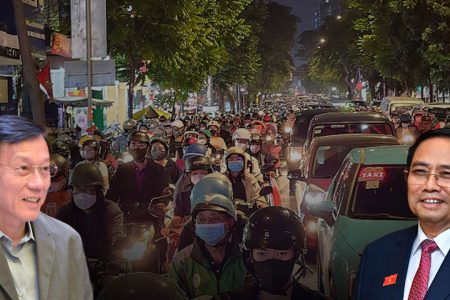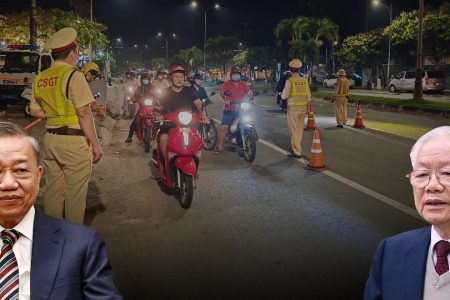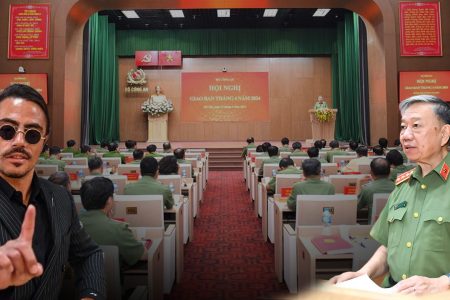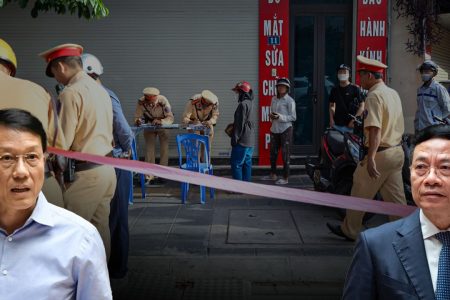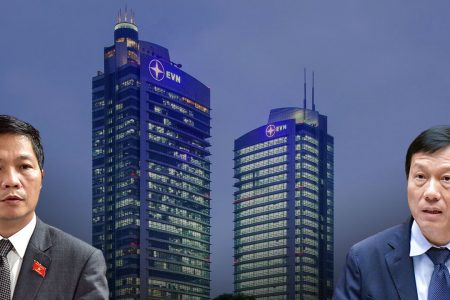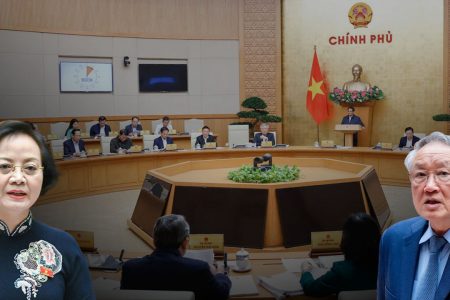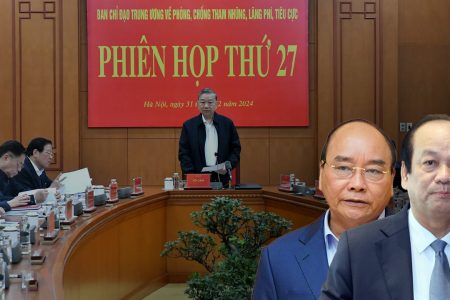
International integration and cooperation are the goals of the Vietnamese government in recent years. International integration is the process by which states with qualified national and territorial status recognized by the world conduct relationships with other countries and international organizations towards shared goals for its own country and other countries, international organizations in politics, economy, culture, security … on the basis of compliance with common institutional frameworks.
In fact, Vietnam is trying to integrate with the world in many aspects such as economy, education, security, and national defense, etc. Hanoi has signed many international conventions, joined international organizations, general trade agreements, etc.
Particularly in terms of human rights and press freedom, Vietnam does not seem to want to integrate, but only behaves in its own way.
According to a ranking published by Reporters Without Borders (RSF) on April 21, 2020, Vietnam ranks 175th out of 180 countries worldwide for the 2020 Press Freedom Index. China and Vietnam are the two countries with the highest number of imprisoned journalists and bloggers in the Asia-Pacific region.
According to Freedom House’s ranking in March 2020, Vietnam is still ranked as a non-free country with a score of only 20 on a 100-point scale.
Freedom House is an international non-governmental organization that monitors global democratization, surveys, and studies the situation of political freedoms and fundamental freedoms of citizens worldwide.
Lawyer Nguyen Van Dai from Germany said that human rights in Vietnam can only be improved once Article 4 of the Constitution is removed. He said:
“If the Communist Party of Vietnam (CPV) respects human rights, the first thing is that they must amend the country’s Constitution and remove Article 4. Because this is the most basic thing for them to rely on to infringe upon and deprive human rights and politics of the Vietnamese people. As for their signing of international human rights treaties or participating in human rights dialogues with the US, Europe, Australia, or one into another country, it is just trying to conceal or reduce condemnation for their human rights violations only. In essence, they never change.
Since 2006 until now, through many human rights dialogues, Vietnam has always promised a lot to the world to improve human rights, but the number of human rights prisoners arrested and imprisoned has increased dramatically.”
Dai said that there is no mechanism in the world to punish member states that have signed international conventions on civil, political or economic, and social rights, but violate them systematically. Vietnam has always made commitments to improve human rights but has not implemented it and is not subject to any sanctions. Therefore, Vietnam continuously violates human rights from year to year.
On January 5, 2021, three journalists from the Vietnam Independent Journalists’ Association were sentenced to a combined total of 37 years in prison on charges of “making, storing and distributing information and articles aimed at opposing the Socialist Republic of Vietnam”
The document of the 12th Party Congress (January 2016) clearly stated the policy and line on international integration as follows: “Ensuring the highest interests of the nation and the people on the basic principles of international law, equality and mutual benefit. Consistent implementation of the foreign policy of independence, self-control, peace, cooperation and development; multilateralization of international relations, proactive and active international integration; be a friend, a trusted partner and a responsible member of the international community.”
Document of the 13th Party Congress (January 2021) adds content to build modern diplomacy for the interests of the nation, with the service of the people and businesses as the center; promote and deepen bilateral cooperation with partners, especially strategic partners and comprehensive partners; continue to proactively and actively integrate into the world, continue to innovate international legal cooperation towards proactively and actively take advantage of international rules and laws and participate in community activities. regional and international, enhancing people’s external relations, etc.
Journalist Le Trung Khoa from Berlin stated his opinion:
“In my opinion, the CPV is also gradually adapting to real life and international integration. This is because they need the economy, dollars to feed the cumbersome apparatus of the party as well as of the parallel state. But they just want to be open economically, not civil rights and democracy. Things are written in the Vietnamese Constitution but they do not. The CPV’s repression intensity against constructive criticism or dissidents in the country has become more and more intense.”
According to Defense the Defenders (DTD), in 2020, the Vietnamese government arrested a total of 60 human rights and land rights activists, and Vietnam sentenced 22 activists to sentence from 9 months to 12 years in prison.
In early 2021, three independent Vietnamese journalists were sentenced to a combined total of 37 years in prison on charges of “making, storing and distributing information and articles aimed at opposing the Socialist Republic of Vietnam.”

Earlier, the Committee to Protect Journalists (CPJ) stated that Vietnam was one of the countries that were particularly adept at imprisoning and harassing journalists and their families, as well as participating in censorship of the Internet and social networks.
Mr. Hoang Tu Duy, the spokesman for Viet Tan, assessed Vietnam’s human rights situation:
“Over the past few years, the number of people arrested has increased, the sentences are getting heavier. Social networks are censored more strictly. The human rights situation has declined markedly in the past year.
In the process of world integration, the State of Vietnam commits more but less respect. That is why the European Parliament recently issued a resolution to oppose the violation of Vietnam’s human rights and called for the suspension of the EVFTA Free Trade Agreement until the State of Vietnam respects its commitments.
Until 2021, Vietnam still keeps Article 4 of the country’s Constitution, political repression is a very backward policy, violating international conventions and hindering the development of the country.”
According to Mr. Hoang Tu Duy, if we want to change the human rights situation in Vietnam, it must be solved radically. This takes time. But short-term steps that can be taken at the moment are lobbying countries to use the Magnitsky Act to penalize human rights abuses by state officials.
This Act, enacted in 2016, applies on a global scale, authorizes the US government to sanction individuals they consider human rights abusers, freeze their property and prohibit them from entering the US.
For lawyer Nguyen Van Dai, the abolition of Article 4 of the Constitution is a prerequisite for the Vietnamese people to have human rights. This never comes from the Communist Party itself, because they vow to protect the party with all costs and consider “the abolition of Article 4 of the Constitution is suicide” so if we want to abolish Article 4 of the Constitution, it must come from the Vietnamese people fighting and forcing the government to change.
Thoibao.de (Translated)







